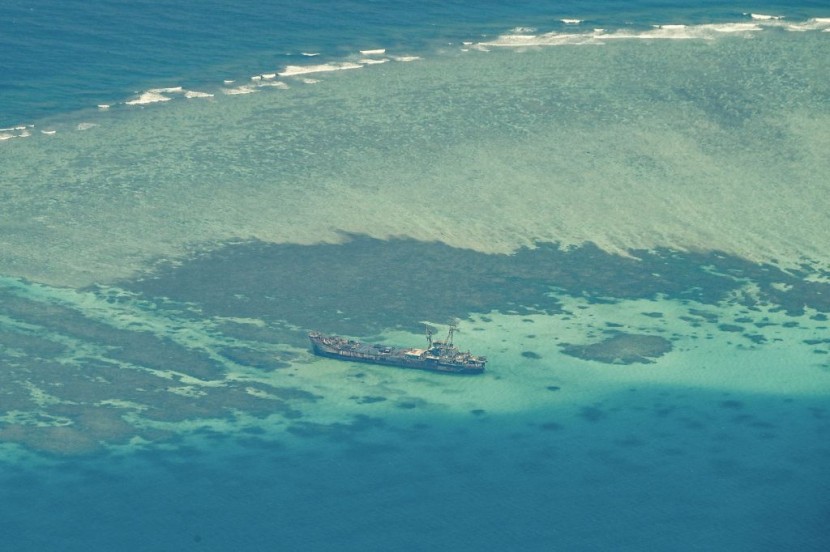
Manila is currently exploring legal avenues to address its concerns regarding China's alleged destruction of coral reefs within the Philippines' exclusive economic zone (EEZ) in the disputed South China Sea.
The Philippines has accused Beijing of causing environmental damage at Iroquois Reef in the Spratly Islands and is assessing the extent of this damage, as per Reuters.
Philippines-China Tensions Rise Over Environmental Damage Claims
Tensions between Manila and Beijing have escalated throughout the year, with the Philippines accusing the Chinese coastguard of engaging in dangerous maneuvers around Second Thomas Shoal, known as Ayungin Shoal in the Philippines.
China claims the entire South China Sea under its controversial nine-dash line, disputed by several neighboring countries, including the Philippines. In 2012, China took control of Scarborough Shoal from the Philippines after a protracted standoff, prompting Manila to pursue legal action with the Permanent Court of Arbitration (PCA) in The Hague.
The PCA ruled in favor of the Philippines in 2016, declaring that the nine-dash line and China's resulting claim had no legal basis. However, China disregarded the court's decision. Now, the Philippines is considering renewed legal action, including potentially approaching the PCA, over the environmental damage caused.
Solicitor General Menardo Guevarra announced these intentions, and the Department of Foreign Affairs has pledged to support any action taken by Guevarra's office. The Philippines highlights the United Nations Convention on the Law of the Sea (UNCLOS), which obliges states to protect and preserve the marine environment. China is also a signatory to UNCLOS.
Under this law, a country's EEZ extends 200 nautical miles from its coast, and the Iroquois Reef is approximately 128 nautical miles from the Philippines' Palawan province. Teresita Daza, a spokeswoman for the Department of Foreign Affairs, emphasized that the obligation to protect and preserve the marine environment applies to all maritime areas, including those within and beyond a country's jurisdiction.
Daza stated, "States entering the Philippines' EEZ and maritime zones, therefore, are obliged to protect and preserve our marine environment," according to Al Jazeera
Seabed Damage Raises Concerns at Iroquois Reef and Sabina Shoal
The Philippine coastguard has reported "extensive" damage to the seabed around Iroquois Reef, an area believed to be rich in oil and gas deposits, and at Sabina Shoal, located about 72 nautical miles northwest of Palawan. Recent surveys have indicated that the marine ecosystem in these areas appears lifeless, with China's alleged illegal and destructive fishing activities suspected as the cause.
In response to the allegations, the Chinese Ministry of Foreign Affairs spokesperson, Mao Ning, rejected the claims and urged the Philippines to refrain from creating political drama. She suggested that the Philippines should tow away the Sierra Madre, a ship grounded by Manila at Second Thomas Shoal nearly 25 years ago, to assert its claim to the waters.
The Philippines' potential legal action against China would mark its second such action concerning South China Sea disputes, following its 2016 victory at the PCA. However, China did not acknowledge the PCA ruling.
The South China Sea remains contentious, with multiple countries, including Malaysia, Vietnam, Taiwan, and Brunei, challenging China's territorial claims. Recent developments have seen rising tensions between the Philippines and China.
Philippine President Ferdinand Marcos Jr. strengthened his country's defense alliance with the United States, diverging from the approach taken by his predecessor, who sought closer ties with China. The situation in the South China Sea continues to evolve, with legal avenues being explored to address complex territorial and environmental disputes, WION via MSN reported.
Related Article: Philippines: Netizens Share Photos, Videos of Taal's 'Vog'
© 2026 HNGN, All rights reserved. Do not reproduce without permission.








